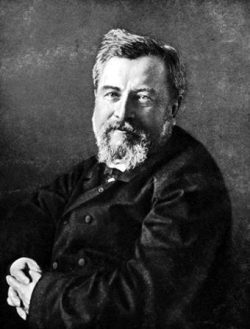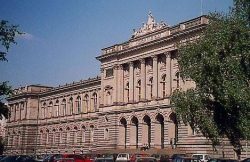The Protestant Faculty
of Theology in Strasbourg
The Protestant Faculty of Theology in Strasbourg, successor to the School founded in 1538, is one of the oldest sites offering training for a variety of ministries within the church.
Today the faculty, part of Strasbourg University, besides theology courses and State diplomas, also offers lifelong learning courses, and develops major research programmes.
The origins
The ideas of the Reform Movement spread in Strasbourg as early as the beginning of the 16th century: they helped in the laying down of a structure for theological education and modern humanism. In 1523 Martin Bucer, a defrocked married Dominican, started a course on the exegesis of biblical books, in German and then in Latin. With the help of other followers of the new Reformed ideas, like Capiton, the teaching of ancient languages, such as Latin, Greek and Hebrew, poetical art, rhetoric, mathematics and law were added to the exegesis course. A boarding facility was started in 1534.
The success of the university training of pastors led to the school becoming an institute: in 1538 it became a Haute Ecole, where Jean Calvin taught from 1538 to 1541. In 1566 the school was promoted to be an Academy, and then a University in 1621.
For 40 years, Jean Sturm was the rector and at the heart of the institution, which promoted “piety, knowledge and eloquence”. Theology was not the only subject taught, but was the most important.
From the Revolution to World War I
With the French Revolution in 1793 the University was shut down. However, Professors and students fought to go on studying until Bonaparte established a new facility: a consular decree of 30 floréal an XI (the 20th of May, 1803) established the Faculty of Strasbourg to train Lutheran pastors under the name “Academy for Protestants of the Augsburg Confession”.
The staff were appointed by the Lutheran board of directors on the recommendation of the existing professors. In 1808 it took the name “Protestant Seminary”.
Under the jurisdiction of the State University, a Faculty of Theology was established in 1819. Thus two establishments coexisted, one governed by the Lutheran Church, the other by the State, but they worked together, having lecturers in common, and the curricula being coordinated.
Studies were divided into two stages as in the Montauban Faculty of Theology: two foundation years and then three years of theology.
There were six chairs at the Faculty, five of which were Lutheran and the sixth was for a professor of dogmatic reformed theology. This was because the Reformed Protestants from Alsace, whose numbers were not insignificant, wanted this to be reflected among both staff and students. Mathias Richard from Mulhouse held the chair until 1868, to be followed by Auguste Sabatier from 1868 to 1871.
At the Strasbourg Faculty of Theology courses were taught in German or in French, depending on the individual lecturer, many of whom were very well known, such as Jean-Frédéric Bruch (1792-1874), Edouard Reuss (1804-1891), Guillaume Schmidt (1812-1895), Timothée Colani (1824-1888), Edouard Cunitz (1812-1896), Frédéric Lichtenberger (1832-1899)… The magazine Revue de théologie et de philosophie chrétienne, generally called Revue de Strasbourg began in 1850 and helped promote the Faculty’s standing in both Germany and France.
Between 1872 and 1918 it became the evangelisch-theologiche Fakultät of Kaiser-Wilhems-Universität, and was moved to larger premises, currently the Palais Universitaire (University Palace).
Some staff refused to teach under German leadership and founded the Protestant faculty of theology in Paris.
Continuity was maintained by the Alsatian staff who remained in Strasbourg, while the newly appointed German professors tried hard to take account of the Alsatian mind-set and distinctiveness. Heinrich Julius Holtzmann (1832-1910) from Baden was one of the best known exegetes of his generation, and Albert Schweitzer (1875-1965) lectured on the New Testament until 1912.
In the 20th century
The return of Alsace to France marked a new beginning: the Faculty of Theology was transferred to the University of Strasbourg again in 1919, and a decree of 1924 officially recognised it as a public institution.
A new generation of staff arrived, including Fernand Ménégoz, Guillaume Baldensperger, Paul Sabatier, Antonin Causse, Henri Strohl, Oscar Cullmann, William Seston, Jean Daniel Benoît… In 1922 the first young lady was enrolled as a first year student. About one third of the students were foreigners.
During World War II the Faculty moved to Clermont-Ferrand along with the whole University of Strasbourg, and kept working in spite of the difficult conditions (three of its staff were arrested and deported). It re-opened in the Alsatian capital in 1945. Among the most brilliant professors were Pierre Burgelin, André Caquot, Roger Mehl, Rodolphe Peter, Charles Hauter, Marc Honegger in musicology…
The 1984 law on higher education turned the Faculty of Theology into an Institute within the University for Social Sciences (Marc-Bloch University Strasbourg III). In 2009 the three Strasbourg universities merged and the Faculty became an Institute in the University of Strasbourg. It is the only Protestant theology establishment awarding national diplomas.
A pre-eminent institution
It currently has a very good network of collaborating universities, notably in Germany Marburg, Tübingen, Heidelberg, and in Switzerland Lausanne, Geneva and Neuchâtel.
The faculty has some 200 French and foreign students over their three courses, i.e. Bachelor, Master and Doctorate degrees. Its library was created in 1919 and has been twinned with that of the Catholic theology faculty since 1971.
The courses offered cover Biblical studies (Old and New Testament, Hebrew, and ancient Greek), history (history of ancient, medieval, modern and contemporary Christianity, and history of religions), systematic disciplines (systematic theology, dogmatics, ethics, philosophy), practical subjects (musicology, sociology of religions, practical theology, homiletics).
Besides preparation for pastoral ministry, it also trains teachers to teach religion in secondary schools and colleges – schools in Alsace-Moselle also being under the concordat system, have compulsory religious education,
Moreover, the Faculty offers continuing education to pastors and committed lay people, training for various duties of the diaconate and helps train lay preachers, catechists and choir masters.
Finally, the Faculty of Theology regrouped major research centres around four subject axes according to their various fields of study:
- “Reference texts and their significance”,
- “History of Christianity”,
- “Dogmatics, ecumenism and practical theology”,
- “Sociology of religions and social ethics”.
The Protestant Faculty
of Theology in Strasbourg
université protestante de strasbourg
Bibliography
- Sites
- Site de la faculté de théologie protestante de Strasbourg | Link
Associated notes
-
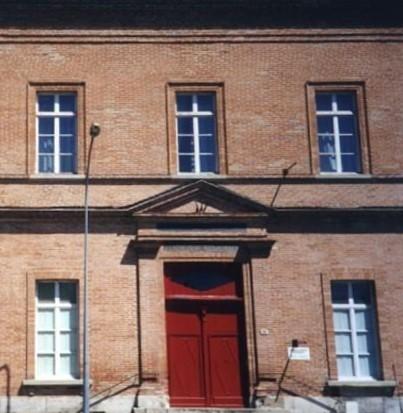
The Montauban Faculty of Theology in the 19th century
The faculty was founded in 1808-1810 and trained the majority of the Reformed Church pastors. After a somewhat tentative beginning, studies were reorganized by a decree initiated by Baron Cuvier... -
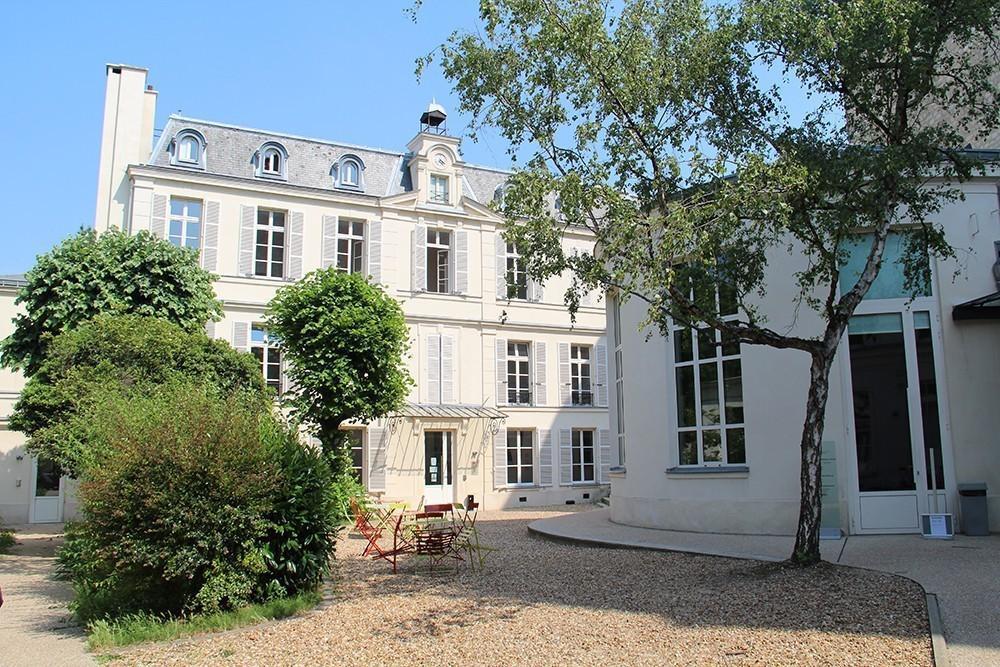
The Faculty of Protestant theology in Paris
Protestant theology had never been taught in Paris, not even at the time of the Edict of Nantes. The transfer of the Strasburg universities to Paris, in the years that... -
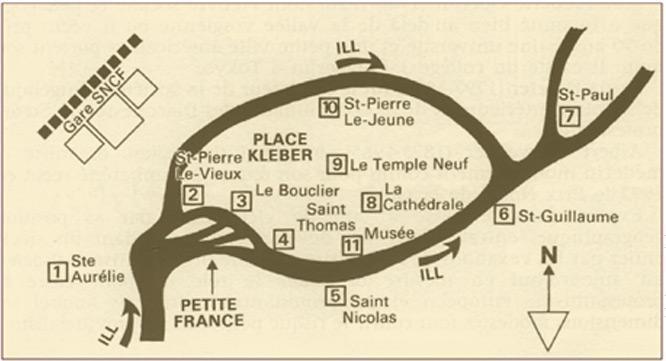
Strasbourg
-
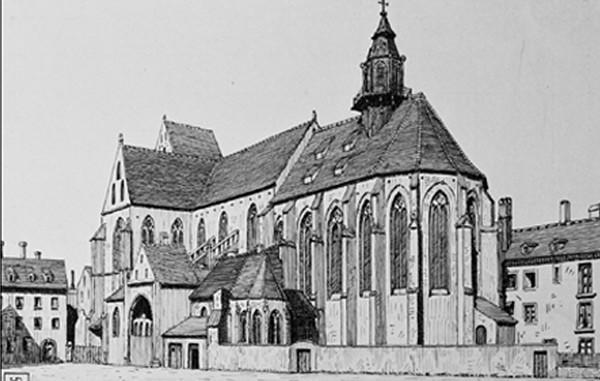
The Reformation in Alsace in 16th century
The Reformation began very early in Alsace and was soon well established. In Strasbourg, it had two characteristics : moderation and an insistence on the Bible study. Martin Bucer’s influence spread... -
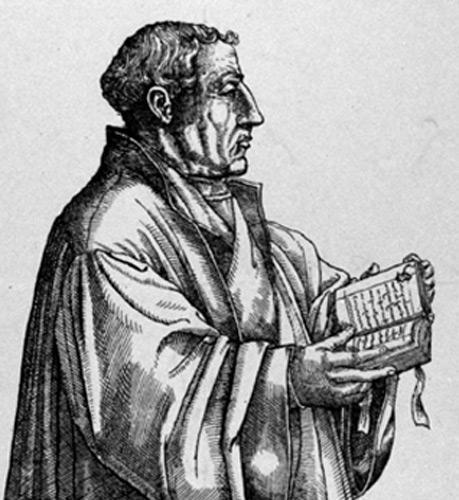
Martin Bucer (1491-1551)
He was born in Alsace, was a humanist and tried all his life long to safeguard the unity of the Church. -
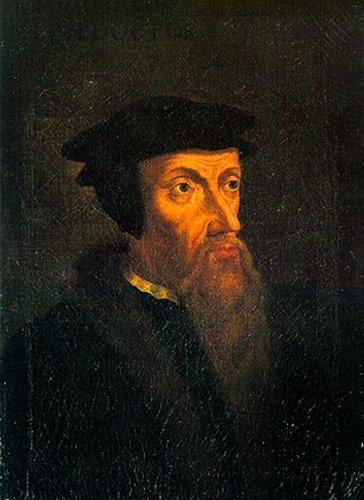
Jean Calvin (1509-1564)
A generation after Luther, the Frenchman Jean Calvin became the organiser of the Reformation : he organised the Church, shaped the doctrine and defined the role of the Church in state government. -
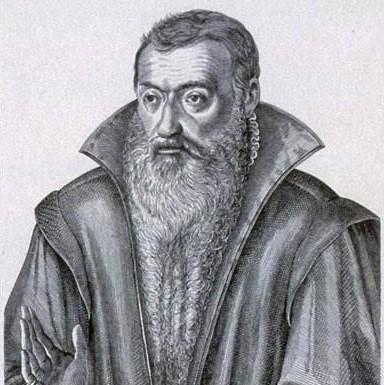
Johannes Sturm (1507-1589)
Jean Sturm was a great protestant humanist, but he will be especially remembered as having been an outstanding headmaster of the “Gymnase” or secondary school in Strasbourg. He was also... -
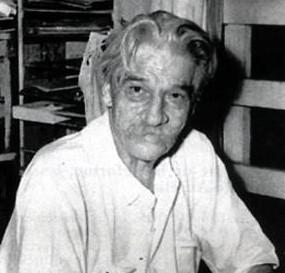
Albert Schweitzer (1875-1965)
Albert Schweitzer was born in Kayserberg, in Alsace. His father was a pastor and very fond of music. He received his secondary education in Mulhouse. He was an exceptionally gifted... -
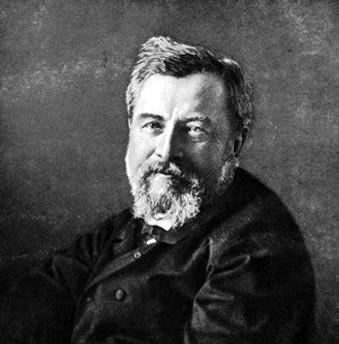
Auguste Sabatier (1839-1901)
-

Edouard Reuss (1804-1891)
Although Edouard Reuss was a professor of theology in the protestant Faculty of Strasburg, he was above all a historian ; dogmatics had little to do with his analysis of the... -
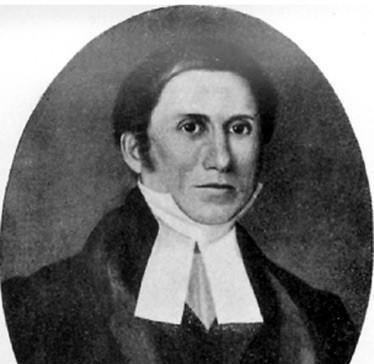
Timothée Colani (1824-1888)
-
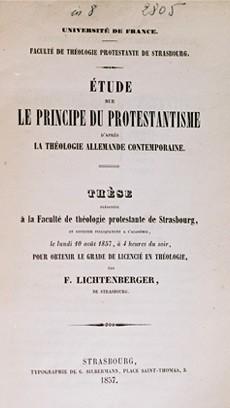
Frédéric Lichtenberger (1832-1899)
Frédéric Lichtenberger was a Lutheran pastor at the Faculty of Theology in Strasbourg until the annexation of Alsace. He was Dean of the Faculty of Theology in Paris ; he was... -
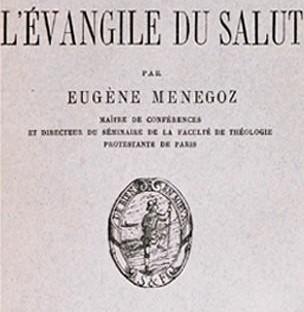
Eugène Ménégoz (1838-1921)
-
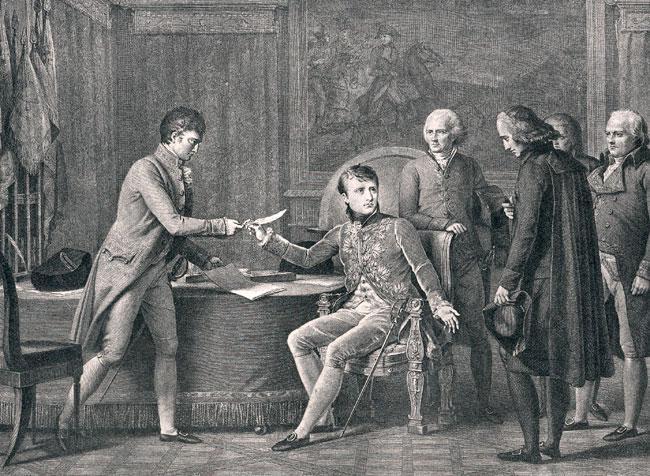
The French Concordat
The Concordat with the Organic Articles, ruled the organisation of Protestant as well as Catholic churches. It did not comprise any restrictive measures, and pastors were to be paid by...


